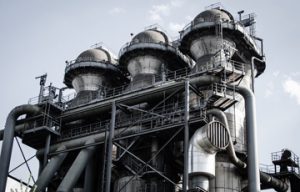Potential of Activated Carbon in India's Manufacturing Landscape
India's industrial landscape is undergoing a significant transformation, driven by a growing emphasis on sustainability and environmental responsibility. As industries strive to meet stricter environmental regulations and consumer demands for cleaner, more responsible production, the importance of activated carbon has emerged as a pivotal element in this shift. In this blog post, we will explore the increasing significance of activated carbon in India's industrial sector and its diverse applications in addressing environmental challenges.
The Role of Activated Carbon
Activated carbon, often referred to as activated charcoal, is a highly porous material with an extensive surface area. Its unique properties make it an exceptional adsorbent, capable of trapping a wide range of impurities, contaminants, and pollutants from air, water, and gases. This versatile substance has gained prominence in various industrial applications, particularly in the context of environmental protection.
Water Purification
Access to clean and safe drinking water is a global concern, and India is no exception. Activated carbon plays a crucial role in the purification of water, effectively removing organic compounds, odors, and contaminants. In India, this is especially important as the country grapples with water pollution issues, making it indispensable for industries that depend on water for their processes.
Air Quality Control
Air pollution is a major challenge in Indian cities, and industrial emissions contribute significantly to the problem. Activated carbon is used in air purification systems to capture volatile organic compounds (VOCs) and hazardous air pollutants. By mitigating industrial emissions, activated carbon contributes to cleaner air quality in the surrounding areas.
Food and Beverage Industry
In the food and beverage industry, activated carbon is widely employed for decolorization and deodorization processes. It helps enhance the quality and safety of food products, ensuring that they meet stringent quality standards and regulations.
Pharmaceutical and Medical Applications
Activated carbon is utilized in pharmaceuticals for purification and separation processes. It is also an essential component in emergency medical treatment, where it is used to treat poisoning and drug overdose cases by adsorbing toxic substances in the digestive system.
Environmental Remediation
The environmental impact of industries in India has raised concerns regarding soil and groundwater contamination. Activated carbon-based technologies are increasingly being used for the remediation of contaminated sites. They help remove hazardous chemicals, heavy metals, and organic pollutants, contributing to the restoration of ecosystem health.
Sustainable Practices
India's industrial sector is embracing activated carbon not only as a remediation tool but also as part of its sustainability efforts. By incorporating activated carbon technologies into their processes, industries can reduce their carbon footprint, minimize waste generation, and comply with stringent environmental regulations. This commitment to sustainable practices enhances their corporate image and ensures long-term competitiveness.
Investment and Growth
As the importance of activated carbon continues to grow, India is witnessing an increase in investment and production capacities for this essential material. This growing demand has led to technological advancements in the production of activated carbon, making it more efficient and cost-effective for industries.
Renewable Energy: The energy sector in India is also recognizing the significance of activated carbon. It is used in renewable energy applications, such as the purification of biogas and syngas, making it a valuable component in the transition to cleaner energy sources.
Wastewater Treatment: India's expanding urban areas generate vast amounts of wastewater. Activated carbon is increasingly used in wastewater treatment plants to remove pollutants, including pharmaceutical residues and heavy metals, contributing to cleaner discharge into natural water bodies.
Air Pollution Control Regulations: With stricter air pollution control regulations in place, industries are turning to activated carbon technologies to comply with emission standards. This not only reduces environmental harm but also helps industries avoid costly penalties.Chemical Industry: The chemical industry relies on activated carbon for various purification processes, ensuring the production of high-quality chemicals and reducing the environmental impact of manufacturing.
Research and Innovation: Research and development in the field of activated carbon are on the rise in India. Scientists and engineers are continually finding new applications and improving the efficiency of activated carbon, making it an exciting field for innovation and investment.
Public Awareness: As environmental awareness increases among the Indian population, consumers are demanding eco-friendly products and services. This has pushed industries to adopt more sustainable practices, including the use of activated carbon in their processes.
Export Opportunities: With the global focus on environmental sustainability, Indian industries that incorporate activated carbon in their operations have opportunities to export not only their products but also their expertise in eco-friendly manufacturing practices.
Carbon Credits: The use of activated carbon can potentially help industries earn carbon credits, which can be valuable in international carbon trading markets and contribute to India's efforts to reduce its carbon footprint.
Collaboration with NGOs and Government: Many industries in India are collaborating with non-governmental organizations (NGOs) and government bodies to implement environmentally responsible practices, and the adoption of activated carbon is often a key component of these initiatives.
Conclusion
Activated carbon's expanding role in India's industrial sector is emblematic of the nation's evolving priorities in the face of environmental challenges. From water purification to air quality control and sustainable manufacturing practices, activated carbon has become a versatile and indispensable tool for industries seeking to meet environmental regulations and consumer expectations. As India continues to grow and develop, the importance of this remarkable material will only become more pronounced, reinforcing the nation's commitment to a cleaner and more sustainable industrial landscape.
In conclusion, the journey of activated carbon in India's industrial landscape signifies a powerful transition towards environmental responsibility and sustainability. With a diverse array of applications, including water purification, air quality control, and remediation of contaminated sites, activated carbon has become an indispensable asset for industries dedicated to cleaner and more responsible production.
At Jay Maa Bhavani Chemicals which is leading manufacturer of activated carbon in India, our commitment to this transformative process is reflected in our high-quality products, including Acid Washed Activated Carbon, Unwashed Activated Carbon, and Granular Activated Carbon. These cutting-edge offerings not only meet the stringent demands of India's environmental regulations but also contribute to a cleaner, safer, and more sustainable future. As the importance of activated carbon continues to rise, we remain at the forefront of innovation and production, ensuring that our clients have access to the best solutions for a greener, more responsible industrial landscape.













